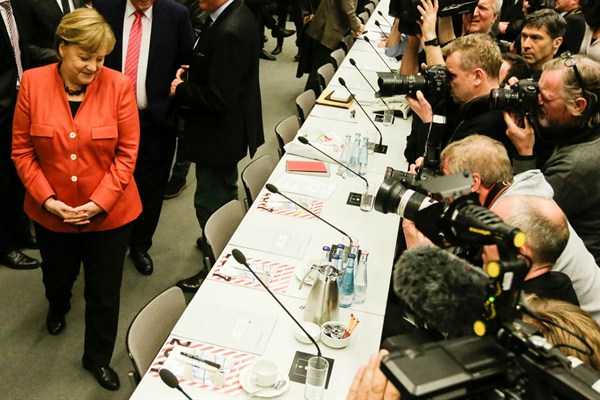BERLIN—Two months after Germany’s federal elections, the country is on the brink of an unexpected political crisis. Chancellor Angela Merkel’s center-right Christian Democrats, or CDU, and their sister party, the Christian Socialists, or CSU, ran first in the vote, but they finished without an outright majority. Since election night, they have been casting about for coalition partners—a process that has proven surprisingly more difficult than political pundits anticipated.
The alternatives, if Merkel can’t form a coalition, are either for the CDU/CSU alliance to rule as a fragile minority government or, more likely, for new elections to take place. The latter option has spooked Germany’s liberal establishment. The far-right Alternative for Germany, or AfD, ran a strong third in the September vote, and there are deep fears they would be the main beneficiaries of a new vote.
Merkel’s party and their partner have now turned to the center-left Social Democrats, or SPD, who finished second, to re-establish the grand coalition that has governed Germany for the past five years. Except that alliance severely damaged the SPD, which in September had its worst electoral showing since World War II. But as Merkel’s other options have faded and pressure has mounted to forestall another vote, the SPD has grudgingly entered into preliminary discussions about a coalition with the CDU/CSU.

